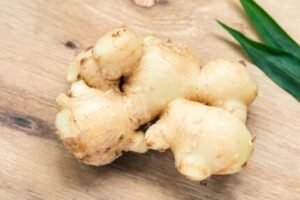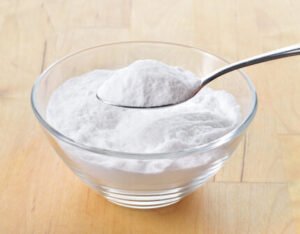Medically reviewed by Dr. Ramesh Gaddam, M.D. — Written by Sumalatha, D.N.H.E
Table of Contents
ToggleAcid reflux, also called GERD, is when stomach acid comes up into the food pipe, causing discomfort. Instead of medicine, some people prefer to use natural methods at home to feel better.
These methods can include changes in diet, lifestyle, and using natural supplements. They aim to reduce symptoms and how often acid reflux happens. There are some easy ways people can manage acid reflux without medicine.
Home Remedies for Acid Reflux
Acid reflux, also known as heartburn or gastroesophageal reflux disease (GERD), can be uncomfortable and disruptive.
While severe cases may require medical intervention, mild to moderate acid reflux can often be managed with simple home remedies.
Here are some home remedies that may help alleviate symptoms:
Dietary Changes

Avoid Trigger Foods:
Spicy Foods:
Spicy foods can irritate the lining of the esophagus and exacerbate acid reflux symptoms.
Avoid dishes containing chili peppers, hot sauce, and spices like chili powder, cayenne, or black pepper.
Acidic Foods:
Citrus fruits (e.g., oranges, lemons, grapefruits), tomatoes, and vinegar-based foods (e.g., pickles, salad dressings) are acidic and can trigger heartburn. Limit your intake of these foods.
Fatty Foods:
High-fat foods, such as fried foods, fatty cuts of meat, and full-fat dairy products, can relax the lower esophageal sphincter (LES), allowing stomach acid to reflux into the esophagus.
Opt for leaner protein sources and low-fat dairy options.
Fried Foods:
Fried foods are often high in fat and can contribute to acid reflux symptoms.
Choose baked, grilled, or steamed alternatives instead.
Limit or Avoid Certain Beverages:

Caffeine:
Coffee, tea, and caffeinated sodas can increase stomach acid production and relax the LES, potentially worsening acid reflux symptoms. Consider switching to decaffeinated options.
Alcohol:
Alcoholic beverages can also relax the LES and stimulate stomach acid production.
Limit your alcohol intake or avoid it altogether, especially if you notice that it triggers your symptoms.
Carbonated Beverages:
Carbonated drinks, including soda and sparkling water, can lead to bloating and increase the pressure on the stomach, promoting acid reflux.
Opt for still water or herbal teas instead.
Eat Smaller, More Frequent Meals:

Consuming large meals can put additional pressure on the stomach and increase the likelihood of acid reflux.
Instead, aim to eat smaller, more frequent meals throughout the day to prevent overloading your digestive system.
Keep a Food Diary:
Keeping a food diary can help you identify specific foods and beverages that trigger your acid reflux symptoms.
Make note of what you eat and drink, as well as any symptoms you experience afterward.
Over time, patterns may emerge, allowing you to make targeted dietary changes to manage your condition more effectively.
Summary:
By incorporating these dietary strategies into your routine and paying attention to how your body responds, you can better manage your acid reflux symptoms and improve your overall digestive health.
Consult with a healthcare professional if you have persistent or severe symptoms.
Lifestyle Adjustments:
Maintain a healthy weight. Excess weight can put pressure on your abdomen, leading to acid reflux.
Elevate the head of your bed by 6 to 8 inches to prevent acid from flowing back into your esophagus while sleeping.
Avoid lying down or bending over after eating. Try to stay upright for at least 2-3 hours after meals.
Wear loose-fitting clothing, especially around your waistline, to reduce pressure on your stomach.
Chew Gum
Chewing sugar-free gum after meals is indeed a simple and potentially effective home remedy for acid reflux.

Here’s how it works:
Increased Saliva Production:
Chewing gum stimulates saliva production in the mouth. Saliva is alkaline and helps neutralize stomach acid, providing temporary relief from acid reflux symptoms.
Swallowing Action:
The act of chewing gum also promotes swallowing, which can help clear acid from the esophagus and reduce the likelihood of reflux.
Digestive Aid:
Saliva contains enzymes that aid in digestion, particularly of carbohydrates.
By increasing saliva production, chewing gum may help facilitate the digestion process, reducing the risk of undigested food lingering in the stomach and contributing to acid reflux.
Tips to Choose
When choosing gum for this purpose, opt for sugar-free varieties to avoid exacerbating acid reflux symptoms with added sugars.
Additionally, chewing gum should be used as a complementary strategy alongside other lifestyle and dietary modifications for managing acid reflux.
While chewing gum can provide temporary relief for mild cases of acid reflux, it may not be suitable for everyone, particularly those with jaw or dental issues.
Ginger
Ginger is a popular natural remedy for various digestive issues, including acid reflux.

Here’s how ginger can help alleviate acid reflux symptoms:
Anti-Inflammatory Properties:
Ginger contains bioactive compounds such as gingerol, which have potent anti-inflammatory effects.
Inflammation in the gastrointestinal tract can contribute to acid reflux symptoms, and ginger’s anti-inflammatory properties may help reduce this inflammation, providing relief.
Soothing Effect:
Ginger has a soothing effect on the stomach lining, which can help alleviate discomfort associated with acid reflux.
It may help calm irritation and reduce the burning sensation often experienced during reflux episodes.
Promotion of Digestive Health:
Ginger promotes overall digestive health by stimulating saliva production, aiding in the breakdown of food, and facilitating smooth digestion.
Improved digestion can help reduce the likelihood of acid reflux episodes.
Here are a few ways to incorporate ginger into your diet to help manage acid reflux:
Ginger Tea:
Prepare ginger tea by steeping fresh ginger slices or grated ginger root in hot water for several minutes.
You can enjoy ginger tea on its own or add honey or lemon for flavor.
Fresh Ginger:
Add fresh ginger to your meals as a flavorful and aromatic spice. Grate or finely chop ginger and include it in stir-fries, soups, sauces, or smoothies.
Ginger Supplements:
If you prefer, you can also take ginger supplements in the form of capsules or tablets.
However, it’s essential to follow the recommended dosage and consult with a healthcare professional before starting any new supplement regimen.
While ginger can be beneficial for many people with acid reflux, individual responses may vary.
Some individuals may find ginger exacerbates their symptoms, particularly if consumed in large amounts.
It’s always a good idea to start with small amounts of ginger and monitor how your body responds.
If you have any concerns or underlying health conditions, consult with a healthcare provider before using ginger as a remedy for acid reflux.
Baking Soda
Using baking soda (sodium bicarbonate) to alleviate acid reflux symptoms is a common home remedy.

Here’s how it works and some important considerations:
Neutralizing Stomach Acid:
Baking soda is alkaline, and when mixed with water, it can help neutralize stomach acid temporarily.
This can provide relief from the burning sensation associated with acid reflux by raising the pH of the stomach contents.
Method of Use:
To use baking soda for acid reflux relief, mix about 1 teaspoon of baking soda in a glass of water.
Stir until the baking soda dissolves completely, and then drink it slowly.
It’s essential to consume it slowly to avoid excessive gas formation.
Temporary Relief:
Drinking baking soda solution can provide temporary relief from acid reflux symptoms, but it may not address the underlying causes of the condition.
It’s typically used as a quick fix for occasional heartburn rather than a long-term solution.
Use Sparingly:
Baking soda should be used sparingly for acid reflux relief, as excessive consumption can lead to electrolyte imbalances and other health issues. It’s not recommended for regular or frequent use.
Considerations:
Individuals with high blood pressure, heart problems, kidney disease, or other medical conditions should exercise caution when using baking soda, as it contains sodium, which can affect these conditions.
Advise
It’s advisable to consult with a healthcare professional before using baking soda as a remedy, especially if you have any underlying health concerns.
While baking soda can provide temporary relief from acid reflux symptoms, it’s important to address the root causes of the condition through lifestyle and dietary changes.
If you experience frequent or severe acid reflux symptoms, it’s best to consult with a healthcare provider for proper diagnosis and treatment recommendations.
Apple Cider Vinegar
Apple cider vinegar (ACV) is a popular natural remedy that some people use to alleviate acid reflux symptoms.

Here’s how it may work and some important considerations:
Acidic Nature
Despite its acidic nature, some proponents suggest that apple cider vinegar can help balance stomach acid levels.
It’s believed that consuming diluted apple cider vinegar may prompt the stomach to produce more acid, which can help improve digestion and reduce symptoms of acid reflux.
Method of Use
To use apple cider vinegar for acid reflux relief, dilute about 1 tablespoon of ACV in a large glass of water and drink it before meals.
It’s important to dilute ACV to reduce its acidity and minimize the risk of irritation to the esophagus.
Potential Benefits
Some people report experiencing relief from acid reflux symptoms after using apple cider vinegar, including reduced heartburn and improved digestion.
However, individual responses can vary, and what works for one person may not work for another.
Caution
While some individuals may find relief from apple cider vinegar, it’s essential to exercise caution, as it may worsen symptoms in some cases.
ACV is highly acidic and can irritate the lining of the esophagus, especially if consumed in large amounts or if someone has existing esophageal inflammation or damage.
Risk of Tooth Erosion
Consuming undiluted apple cider vinegar or using it frequently can also pose a risk of tooth erosion due to its acidity.
To minimize this risk, always dilute ACV in water and rinse your mouth with plain water afterward.
Consultation with Healthcare Provider:
If you’re considering using apple cider vinegar for acid reflux relief, it’s advisable to consult with a healthcare provider, especially if you have underlying health conditions or are taking medications.
They can provide personalized advice and help determine whether this remedy is appropriate for you.
Overall, while some people may find relief from acid reflux symptoms by using apple cider vinegar, it’s not a universal remedy, and it’s important to use it cautiously and in moderation.
Additionally, it’s essential to address underlying dietary and lifestyle factors that contribute to acid reflux for long-term management of the condition.
Aloe Vera Juice
Aloe vera juice is another natural remedy that some people use to alleviate symptoms of acid reflux and soothe irritation in the esophagus.

Here’s how it may work and some important considerations:
Soothing Properties
Aloe vera contains compounds known for their anti-inflammatory and soothing properties.
Drinking a small amount of aloe vera juice may help reduce inflammation and irritation in the esophagus, providing relief from acid reflux symptoms.
Mucilage Content
Aloe vera contains mucilage, a gel-like substance that can coat and protect the lining of the esophagus, helping to reduce discomfort caused by acid reflux.
Method of Use
When using aloe vera juice for acid reflux relief, it’s important to choose a product specifically meant for internal use and free from added sugars or artificial ingredients.
Start with a small amount, such as 1-2 ounces, and gradually increase as needed. It’s typically recommended to drink aloe vera juice 20-30 minutes before meals.
Quality and Purity
Ensure that you select high-quality aloe vera juice from reputable brands to ensure purity and avoid potential contaminants.
Look for products that are certified organic and free from aloin, a compound found in the outer leaf of the aloe vera plant that can have laxative effects and may be harmful in large amounts.
Individual Responses
Like other natural remedies, the effectiveness of aloe vera juice for acid reflux relief can vary from person to person. Some individuals may experience significant relief from symptoms, while others may not notice a difference.
It’s essential to monitor your body’s response and adjust your usage accordingly.
Consultation with Healthcare Provider
As with any natural remedy, it’s advisable to consult with a healthcare provider before using aloe vera juice for acid reflux relief, especially if you have underlying health conditions or are taking medications.
They can provide personalized advice and ensure that it’s safe for you to use.
While aloe vera juice may offer relief for some individuals with acid reflux, it’s not a substitute for addressing underlying dietary and lifestyle factors that contribute to the condition.
Incorporating aloe vera juice into a comprehensive approach to managing acid reflux, including dietary modifications and lifestyle adjustments, may help improve symptoms and promote overall digestive health.
Licorice
Deglycyrrhizinated licorice (DGL) supplements are a popular natural remedy for acid reflux and related gastrointestinal issues.

Here’s how DGL may help alleviate symptoms of acid reflux and some important considerations:
Coating and Protecting the Esophageal Lining
DGL contains compounds that help form a protective layer over the lining of the esophagus, providing relief from irritation and discomfort caused by acid reflux.
This protective coating can help reduce inflammation and promote healing of the esophageal tissues.
Reduction of Acid Reflux Symptoms
By soothing and protecting the esophageal lining, DGL supplements may help alleviate symptoms associated with acid reflux, such as heartburn, chest pain, and regurgitation.
Deglycyrrhizination Process
DGL is derived from licorice root, but the glycyrrhizin compound, which can cause side effects such as high blood pressure and fluid retention, is removed during the manufacturing process.
This makes DGL supplements safer for long-term use compared to regular licorice supplements.
Stimulation of Mucus Production
DGL may stimulate the production of mucus in the stomach, which can help protect the stomach lining from acid damage and promote healing of ulcers.
Chewable Tablets or Lozenges
DGL supplements are often available in chewable tablet or lozenge form, which allows for direct contact with the esophageal tissues.
They are typically taken before meals to provide a protective coating before consuming food.
Consultation with Healthcare Provider
As with any supplement, it’s important to consult with a healthcare provider before using DGL for acid reflux relief, especially if you have underlying health conditions or are taking medications.
They can provide guidance on proper dosage and usage and ensure that it’s safe for you to use.
While DGL supplements may offer relief for some individuals with acid reflux, it’s essential to address underlying dietary and lifestyle factors that contribute to the condition.
Incorporating DGL into a comprehensive approach to managing acid reflux, along with dietary modifications, lifestyle adjustments, and other natural remedies, may help improve symptoms and promote overall digestive health.
Probiotics
Consuming foods rich in probiotics is a natural approach to promoting a healthy gut microbiome, which can play a role in reducing acid reflux symptoms.

Here’s how probiotics may help alleviate acid reflux and some examples of probiotic-rich foods:
Restoring Gut Microbiome Balance
Probiotics are beneficial bacteria that help maintain a healthy balance of microorganisms in the gut.
Disruptions in the gut microbiome can contribute to digestive issues, including acid reflux.
Consuming probiotic-rich foods can help restore this balance and support digestive health.
Improving Digestive Function
Probiotics aid in the digestion and absorption of nutrients in the gut, which can help reduce the incidence of acid reflux symptoms.
A healthy gut microbiome promotes efficient digestion and may help prevent stomach contents from backing up into the esophagus.
Reducing Inflammation
Some strains of probiotics have anti-inflammatory properties, which can help reduce inflammation in the gastrointestinal tract, including the esophagus.
By lowering inflammation, probiotics may alleviate symptoms associated with acid reflux, such as heartburn and discomfort.
Examples of Probiotic-Rich Foods:
Yogurt:
Choose plain, unsweetened yogurt with live and active cultures, as added sugars can exacerbate acid reflux symptoms.
Kefir:
A fermented milk drink similar to yogurt but with a thinner consistency. Look for varieties that contain live probiotic cultures.
Sauerkraut:
Fermented cabbage that is rich in probiotics. Opt for unpasteurized sauerkraut to ensure it contains live cultures.
Kimchi:
A traditional Korean dish made from fermented vegetables, typically cabbage and radishes. Like sauerkraut, choose unpasteurized varieties for maximum probiotic benefit.
Probiotic Supplements
In addition to probiotic-rich foods, probiotic supplements are available in various forms, including capsules, powders, and liquids. These supplements may contain specific strains of probiotics that have been studied for their digestive health benefits.
Consistency is Key
To reap the benefits of probiotics for acid reflux relief, it’s important to consume probiotic-rich foods regularly as part of a balanced diet. Consistency is key in maintaining a healthy gut microbiome.
While probiotics can be beneficial for many individuals with acid reflux, it’s important to note that not all strains of probiotics may have the same effects, and individual responses can vary.
As with any dietary change or supplement regimen, it’s advisable to consult with a healthcare professional, especially if you have underlying health conditions or are taking medications.
They can provide personalized advice and help determine the most suitable probiotic approach for your needs.
Slippery Elm
Slippery elm is a traditional remedy that has been used for centuries to soothe various digestive issues, including acid reflux.

Here’s how slippery elm may help alleviate acid reflux symptoms and some important considerations:
Mucilage Content
Slippery elm contains a substance called mucilage, a gel-like substance that becomes slippery when mixed with water.
This mucilage can coat and soothe the lining of the esophagus, providing a protective barrier against stomach acid and reducing irritation.
Soothing Effect
The soothing properties of slippery elm can help alleviate symptoms of acid reflux, such as heartburn, chest pain, and throat irritation.
By forming a protective layer over the esophageal tissues, slippery elm may help reduce discomfort and promote healing.
Method of Use
Slippery elm supplements are available in various forms, including capsules, powders, and lozenges.
Additionally, slippery elm bark can be brewed into a tea by steeping it in hot water.
Drinking slippery elm tea before or after meals may help provide relief from acid reflux symptoms.
Safe and Natural
Slippery elm is generally considered safe for most people when used as directed.
However, it’s essential to follow dosage instructions provided by the manufacturer or healthcare professional.
Consultation with Healthcare Provider
If you’re considering using slippery elm for acid reflux relief, it’s advisable to consult with a healthcare provider, especially if you have underlying health conditions or are taking medications.
They can provide guidance on proper usage and ensure that it’s safe for you to use.
Other Considerations
While slippery elm may provide relief from acid reflux symptoms, it’s important to address underlying dietary and lifestyle factors that contribute to the condition.
Incorporating slippery elm into a comprehensive approach to managing acid reflux, along with dietary modifications, lifestyle adjustments, and other natural remedies, may help improve symptoms and promote overall digestive health.
Overall, slippery elm is a natural and gentle remedy that may help soothe the lining of the esophagus and provide relief from acid reflux symptoms.
However, individual responses may vary, and it’s essential to consult with a healthcare professional before starting any new supplement regimen.
Bananas
Bananas are often recommended as a natural remedy for acid reflux due to their soothing properties and ability to neutralize stomach acid.

Here’s how bananas may help alleviate acid reflux symptoms:
Alkaline Nature
Bananas are naturally low in acid and have an alkaline pH, which can help neutralize stomach acid and reduce the acidity of the digestive tract.
Consuming alkaline foods like bananas may help counteract the effects of acid reflux and provide relief from symptoms.
Rich in Natural Antacids
Bananas contain natural antacids, such as potassium and magnesium, which can help neutralize stomach acid and provide relief from heartburn and irritation in the esophagus.
Soothing Effect
The soft texture of ripe bananas can help soothe the lining of the esophagus and stomach, providing a protective barrier against irritation and inflammation.
This can help alleviate discomfort associated with acid reflux.
Pectin Content
Bananas are also rich in pectin, a soluble fiber that can help promote healthy digestion and prevent symptoms of acid reflux.
Fiber helps regulate bowel movements and may reduce the risk of gastroesophageal reflux by promoting regularity.
Easy to Digest
Bananas are easy to digest, making them a gentle option for individuals with sensitive stomachs or digestive issues.
They are often recommended as a bland food to eat during episodes of acid reflux or when recovering from digestive upset.
Versatile and Portable
Bananas are convenient to incorporate into your diet and can be enjoyed as a standalone snack or added to smoothies, oatmeal, yogurt, or baked goods.
While bananas can be beneficial for many individuals with acid reflux, it’s important to note that triggers for acid reflux can vary from person to person.
Some individuals may find that bananas exacerbate their symptoms, particularly if they have a sensitivity to certain fruits or if they consume bananas when they are not fully ripe.
Overall, incorporating bananas into a balanced diet may help alleviate acid reflux symptoms for some individuals.
However, it’s essential to address underlying dietary and lifestyle factors and consult with a healthcare professional if you have persistent or severe symptoms.
They can provide personalized advice and recommendations based on your individual needs and health status.
Melatonin
Melatonin is a hormone naturally produced by the body’s pineal gland, primarily in response to darkness, to regulate sleep-wake cycles.

However, melatonin has also been studied for its potential role in managing gastrointestinal disorders, including acid reflux. Here’s how melatonin may help alleviate acid reflux symptoms and some important considerations:
Anti-Inflammatory and Antioxidant Effects
Melatonin has been shown to have anti-inflammatory and antioxidant properties, which can help reduce inflammation and oxidative stress in the gastrointestinal tract.
This may contribute to the management of acid reflux symptoms, as inflammation and oxidative damage can exacerbate reflux symptoms.
Regulation of Lower Esophageal Sphincter (LES) Pressure
Melatonin may help regulate the pressure of the lower esophageal sphincter (LES), the muscle that controls the flow of stomach contents into the esophagus.
Dysfunction of the LES is a common factor in acid reflux, and melatonin’s effects on LES pressure may help prevent reflux episodes.
Protection of Esophageal Tissues
Some research suggests that melatonin may help protect the lining of the esophagus from damage caused by stomach acid.
By promoting tissue repair and regeneration, melatonin may help alleviate symptoms of acid reflux and prevent complications such as esophagitis or Barrett’s esophagus.
Reduction of Gastric Acid Secretion
Melatonin has been shown to inhibit gastric acid secretion in animal studies.
By reducing the production of stomach acid, melatonin may help decrease the acidity of gastric contents, which can lessen the likelihood and severity of acid reflux episodes.
Considerations
While some research suggests that melatonin may be beneficial for managing acid reflux symptoms, more studies are needed to confirm its efficacy and safety for this purpose.
Additionally, individual responses to melatonin supplementation can vary, and it may not be suitable for everyone.
Consultation with Healthcare Provider
If you’re considering using melatonin for acid reflux relief, it’s advisable to consult with a healthcare provider, especially if you have underlying health conditions or are taking medications.
They can provide guidance on proper dosage, usage, and potential interactions with other medications.
Other Uses of Melatonin
Melatonin is primarily known for its role in regulating sleep, and supplementation is commonly used to treat sleep disorders such as insomnia or jet lag.
If you’re taking melatonin for sleep-related issues and also experience acid reflux, you may notice improvements in reflux symptoms as a secondary benefit.
Summary:
Overall, while melatonin shows promise as a potential treatment for acid reflux, more research is needed to fully understand its mechanisms of action and effectiveness.
It’s important to discuss its use with a healthcare professional before starting supplementation, especially if you’re seeking relief from acid reflux symptoms.
Chamomile Tea
Chamomile tea is a popular herbal remedy that is often used to soothe digestive discomfort, including symptoms of acid reflux.

Here’s how chamomile tea may help alleviate acid reflux symptoms and some important considerations:
Anti-Inflammatory Properties
Chamomile contains compounds with anti-inflammatory properties, such as flavonoids and terpenoids.
These compounds can help reduce inflammation in the gastrointestinal tract, including the esophagus, which may alleviate symptoms of acid reflux.
Muscle Relaxant
Chamomile has mild muscle-relaxant properties, which can help relax the muscles of the digestive tract, including the lower esophageal sphincter (LES).
Relaxation of the LES can help prevent the backward flow of stomach acid into the esophagus, reducing the frequency and severity of reflux episodes.
Soothing Effect
Drinking chamomile tea can have a soothing effect on the lining of the esophagus and stomach, helping to alleviate discomfort associated with acid reflux.
The warm liquid can also help dilute stomach acid and promote digestion.
Stress Reduction
Chamomile tea is known for its calming and stress-relieving properties. Stress and anxiety can exacerbate acid reflux symptoms by increasing stomach acid production and impairing digestion.
Drinking chamomile tea may help reduce stress levels, which can indirectly improve acid reflux symptoms.
Preparation
To make chamomile tea, steep chamomile flowers in hot water for several minutes.
You can drink chamomile tea plain or add honey or lemon for flavor.
It’s typically recommended to drink chamomile tea between meals or before bedtime to promote relaxation and aid digestion.
Considerations
While chamomile tea is generally considered safe for most people, some individuals may be allergic to chamomile or experience side effects such as allergic reactions, gastrointestinal upset, or drowsiness.
If you have a history of allergies or sensitivities, it’s advisable to test chamomile tea in small amounts and monitor your body’s response.
Consultation with Healthcare Provider
If you’re considering using chamomile tea for acid reflux relief, especially if you have underlying health conditions or are taking medications, it’s advisable to consult with a healthcare provider.
They can provide personalized advice and ensure that chamomile tea is safe for you to use.
Overall, chamomile tea is a gentle and natural remedy that may help alleviate symptoms of acid reflux, particularly when used as part of a comprehensive approach to managing the condition.
However, individual responses may vary, and it’s essential to listen to your body and seek medical advice if you have any concerns.
Frequently Asked Questions
1. What causes acid reflux?
Acid reflux is often caused by a weakened lower esophageal sphincter (LES), allowing stomach acid to flow back into the esophagus.
2. What is acid reflux?
Acid reflux is a condition where stomach acid flows back into the esophagus, causing symptoms like heartburn and regurgitation.
3. How to get rid of acid reflux?
Lifestyle changes, such as avoiding trigger foods, eating smaller meals, and using medications like antacids or proton pump inhibitors, can help manage and alleviate acid reflux symptoms.
4. What does acid reflux feel like?
Acid reflux can feel like a burning sensation in the chest, known as heartburn, and may involve regurgitation or a sour taste in the mouth.
5. What helps acid reflux?
Eating smaller meals, avoiding trigger foods, and using over-the-counter medications like antacids or H2 blockers can help alleviate acid reflux symptoms.
6. What to drink for acid reflux?
Water is generally the best choice.
Herbal teas, like chamomile, and non-citrus juices may also be soothing.
7. How to get rid of acid reflux fast?
Immediate relief can be achieved with antacids.
However, long-term management involves lifestyle changes and medications.
8. How to get rid of acid reflux in throat fast?
Drinking water, avoiding lying down after meals, and using antacids may help alleviate throat symptoms.
9. How to stop acid reflux?
Lifestyle changes, including dietary adjustments, weight management, and avoiding lying down after meals, can help prevent acid reflux.
10. What to do during an acid reflux attack?
Sit up straight, drink water, and consider taking an antacid for quick relief during an acid reflux episode.
11. How to treat acid reflux?
Treatment for acid reflux may involve lifestyle modifications such as dietary changes, weight management, and avoiding lying down after meals.
Medications like proton pump inhibitors or H2 blockers may also be prescribed.
12. How to help acid reflux?
Helping acid reflux involves adopting lifestyle changes, including avoiding trigger foods, eating smaller meals, and managing stress.
Elevating the head during sleep and staying upright after eating can also provide relief.
13. How to get rid of acid reflux in throat fast at home?
Fast relief for acid reflux in the throat can be achieved by drinking water, avoiding trigger foods, and using antacids.
Gargling with baking soda or non-citrus throat lozenges may also help.
14. What to take for acid reflux?
Over-the-counter options include antacids, H2 blockers, and proton pump inhibitors.
Prescription medications may be recommended for severe cases.
Consult a healthcare professional for personalized advice.
15. How I cured my acid reflux?
Individual experiences vary, but some people find relief through consistent lifestyle changes, dietary adjustments, and medication adherence.
Consult with a healthcare professional for guidance.
16. What juices are good for acid reflux?
Non-citrus juices like apple, carrot, and aloe vera juice are often considered gentler on individuals with acid reflux.
However, reactions can vary, so it’s essential to monitor personal tolerance.
17. What foods help acid reflux go away?
Foods like bananas, oatmeal, and ginger may have soothing effects on acid reflux symptoms.
It’s crucial to identify and avoid trigger foods that worsen symptoms.
18. How to get rid of acid reflux in throat?
Alleviating acid reflux in the throat involves lifestyle changes, including dietary adjustments, avoiding late-night eating, and using medications as prescribed.
Gargling with baking soda or consuming non-citrus throat lozenges may also offer relief.
Medically reviewed by Dr. Ramesh Gaddam, M.D.

General Physician, Diabetologist, and Critical Care Specialist.
Related
Discover more from Health Build-Up
Subscribe to get the latest posts sent to your email.
Pingback: Intestinal Metaplasia : Types, Symptoms and Treatment -
Pingback: What is the role of saliva in the digestion of food
Pingback: Top 7 Gulkand Benefits, Nutrition, Uses, Side Effects, FAQs
Pingback: Ash Gourd : Benefits, Nutrition, Juice, Uses, Side Effects
Pingback: 11 Anti Acidity Foods for Heartburn and Acid Reflux
Pingback: How Long Does Broccoli Last in the Fridge? (Raw & Cooked)